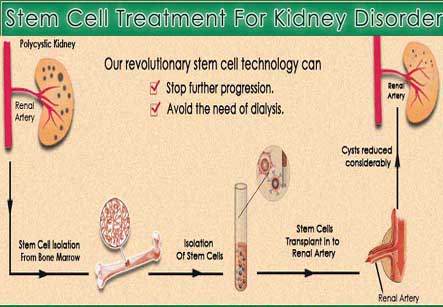Renal Insufficiency
Introduction
Renal insufficiency refers to the inability of the kidneys to function normally. Multiples reasons may be responsible for renal failure. These are chronic diseases of kidneys, diabetes, infections, extremes of ages, toxic effects of drugs etc. Renal failure is a leading cause of mortality and morbidity worldwide. Treatment of renal failure is mainly symptomatic and supportive. In cases severe renal failure the only option is renal transplant i.e. replacement of the diseased kidney of the patient with healthy kidney of a donor. Outcome following renal transplantation is uncertain. Success cannot be guaranteed. Further after transplantation the body’s immune system fails to recognize the transplanted kidney as its own and mounts an attack against the cells. This is called graft rejection. Following transplantation immune system of the patients thus needs to be suppressed by various drugs like steroids. These drugs may lead to side effects like susceptibility to infections that may become life threatening.
Iranian scientists have moved to the forefront in embryonic stem cell research, according to a recent joint study by Harvard University and the Massachusetts Institute of Technology

Treatment
The emerging concept of cell based therapies has provided a structure around which new treatment modalities for various chronic diseases may be developed. Stem cell therapy is one form of cell based therapy. Stem cells have the ability of self renewal and can differentiate into specialized cell type. This has been found effective in various chronic diseases. Stem cell therapy has been evaluated in renal failure. Initial results have been found to be encouraging.
Stem cells have the ability of self renewal and can differentiate into specialized cell type.
Stem cell therapy can introduce supplementary cells into a damaged kidney. These cells help in repair and regeneration process. Cellular supplementation accelerates and augments normal healing process. Stems cells are able to differentiate into renal tissue. One process adopted to augment repair is called transdifferentiation. This process can avoid complications due to modulation of immune system.
The exact mechanism of repair and regeneration is still under evaluation. Studies in animals have suggested possible role of biochemical modulation of cellular system and alteration of different proteins are responsible for these repair and regenerations. Detailed study in human patients is still awaited. Long term effects of stem cell therapy in renal failure are still not known. Details studies are warranted to establish the definite role of stem cell therapy in renal failure.